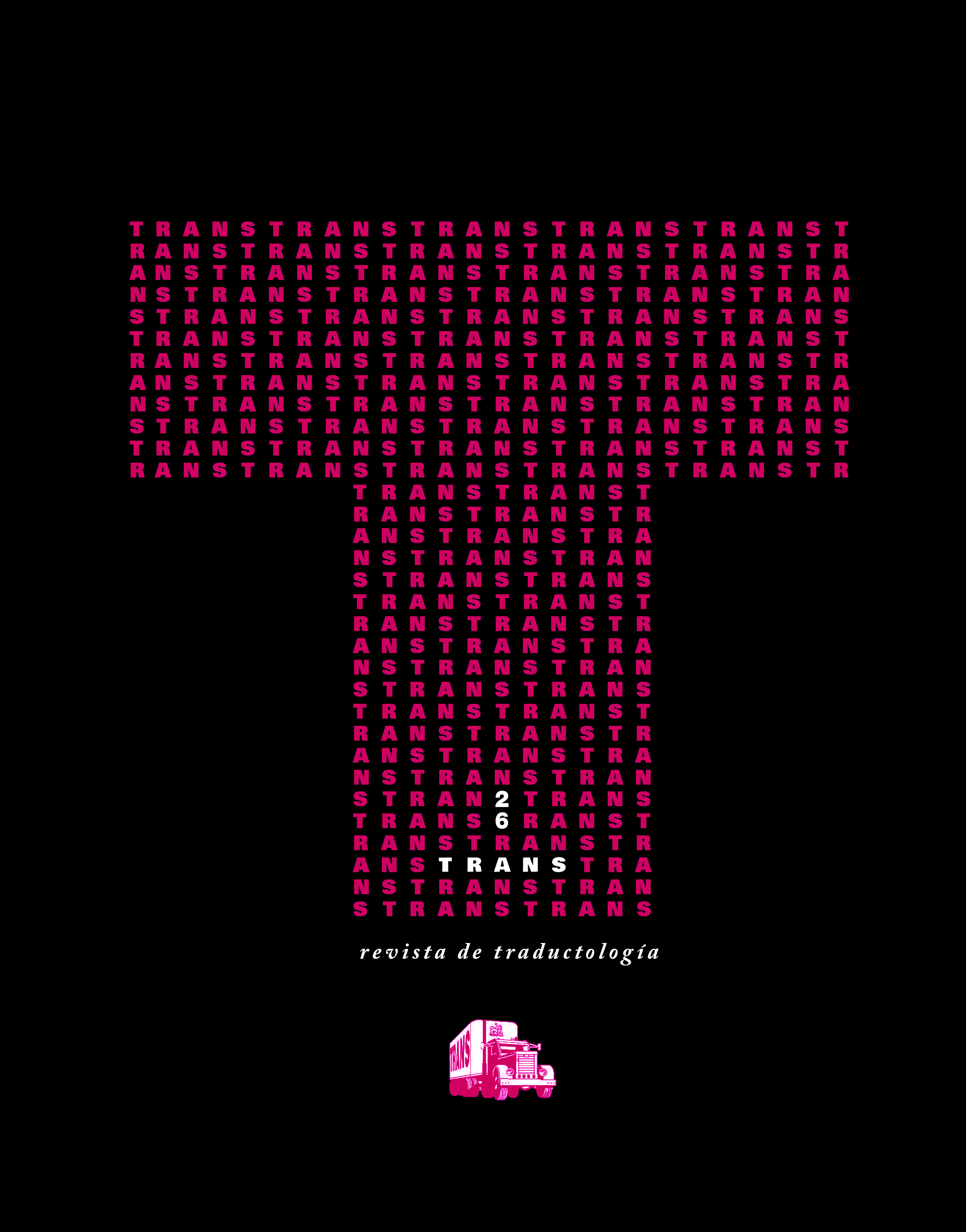Translating in 1997: faxes, modems, and the future
DOI:
https://doi.org/10.24310/TRANS.2022.v26i1.15669Keywords:
Trans: Revista de Traductología, 1997, literary translation, translation for publishers, typewriter, computer, word processor, Internet, rates, word count, ACE Traductores, visibilityAbstract
This article reviews, on the occasion of the twenty-fifth anniversary of the creation of the journal Trans: Revista de Traductología published by the Department of Translation and Interpreting of the University of Malaga, the professional situation of translators working for publishing houses in Spain around 1997. It briefly recalls the computer and lexicographic tools used at that time, as well as the employment conditions (contracts, rates), the legal framewok (Intellectual Property Law), and the associative situation of the translator’s collective (with specific mention of the main Spanish translators’ association, ACE Traductores). It also refers to some of the changes that have taken place since then.
Downloads
Metrics
Publication Facts
Reviewer profiles N/A
Author statements
Indexed in
-
—
- Academic society
- N/A
- Publisher
- Universidad de Málaga
References
Corroto, P. (16 de octubre de 2019). Planeta contra Penguin Random House: guerra abierta entre dos colosos editoriales. El Confidencial. <https://www.elconfidencial.com/cultura/2019-10-16/planeta-penguin-random-house-cercas-vilas_2284280/>
El Trujamán. Revista de traducción (1999). Centro Virtual Cervantes. <https://cvc.cervantes.es/trujaman>
Hachmi, Najat el (14 de octubre de 2022). ¿Quién me traduce? El País (p. 13).
INE (Instituto Nacional de Estadística) (2022), <https://www.ine.es/varipc>.
Martín Ruano, M. R. (2022). La traducción: ese oscuro objeto de desvelos. TRANS, 26.
VV. AA. (1997). Libro Blanco de la traducción en España. ACE Traductores. <https://www.dropbox.com/s/ya2zq6cdq97vecz/primer Libro blanco de la traducción en España.pdf>
VV. AA. (2010). Libro Blanco de la traducción editorial en España. ACE Traductores-Ministerio de Cultura. <https://www.dropbox.com/s/zjflshna8on1nbl/LibroBlancoDeLaTraducciónEditorialEnEspaña_20101.pdf>
Downloads
Published
How to Cite
Issue
Section
License
All contents published in TRANS. Revista de Traductología are protected under the Creative Commons Attribution-NonCommercial-ShareAlike 4.0 International (CC BY-NC-SA 4.0) license. All about this license is available in the following link: <http://creativecommons.org/licenses/by-nc-sa/4.0>
Users can copy, use, redistribute, share and exhibit publicly as long as:
- The original source and authorship of the material are cited (Journal, Publisher and URL of the work).
- It is not used for comercial purposes.
- The existence of the license and its especifications are mentioned.
- ShareAlike — If you remix, transform, or build upon the material, you must distribute your contributions under the same license as the original.
There are two sets of authors’ rights: moral and property rights. Moral rights are perpetual prerogatives, unrenounceable, not-transferable, unalienable, imprescriptible and inembargable. According to authors’ rights legislation, TRANS. Revista de Traductología recognizes and respects authors moral rights, as well as the ownership of property rights, which will be transferred to University of Malaga in open access.
The property rights are referred to the benefits that are gained by the use or the dissemination of works. TRANS. Revista de Traductología is published in an open access form and it is exclusively licenced by any means for doing or authorising distribution, dissemination, reproduction, , adaptation, translation or arrangement of works.
Authors are responsable for obtaining the necessary permission to use copyrighted images.













21.png)
